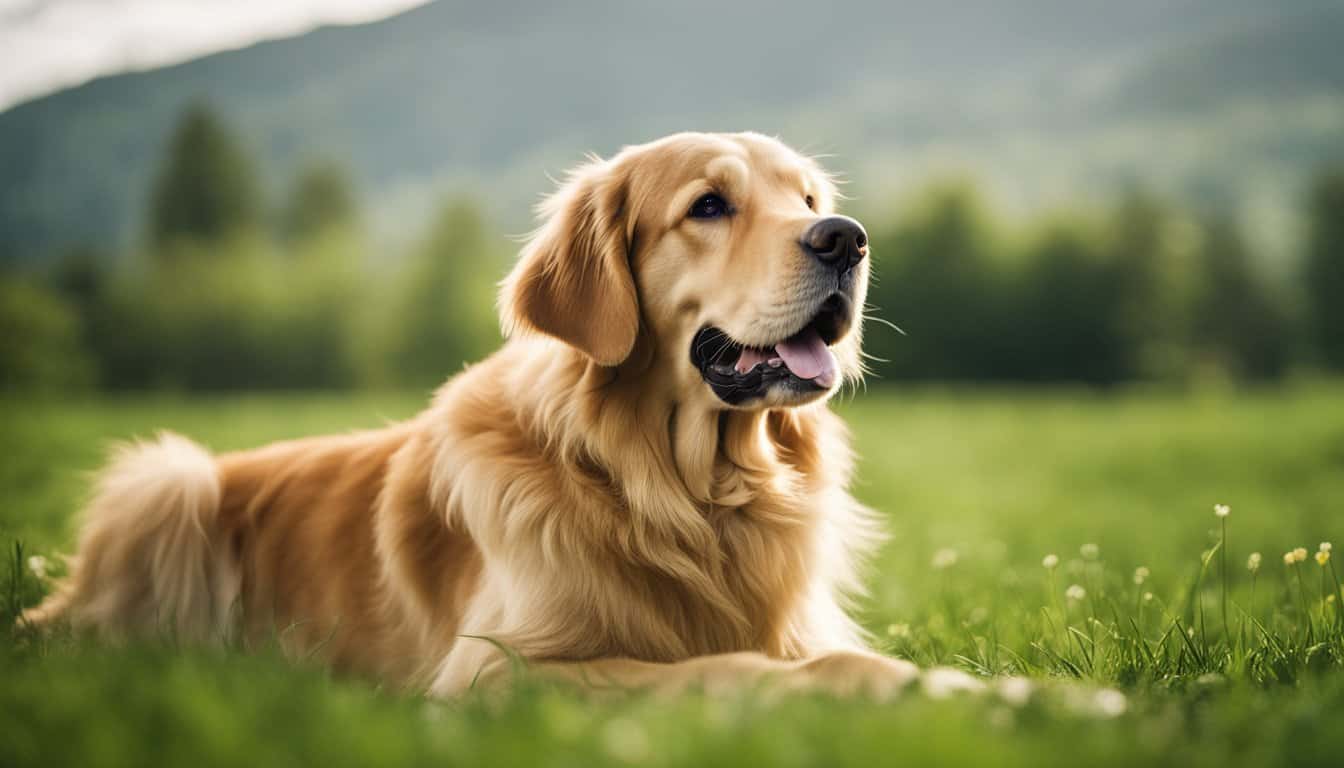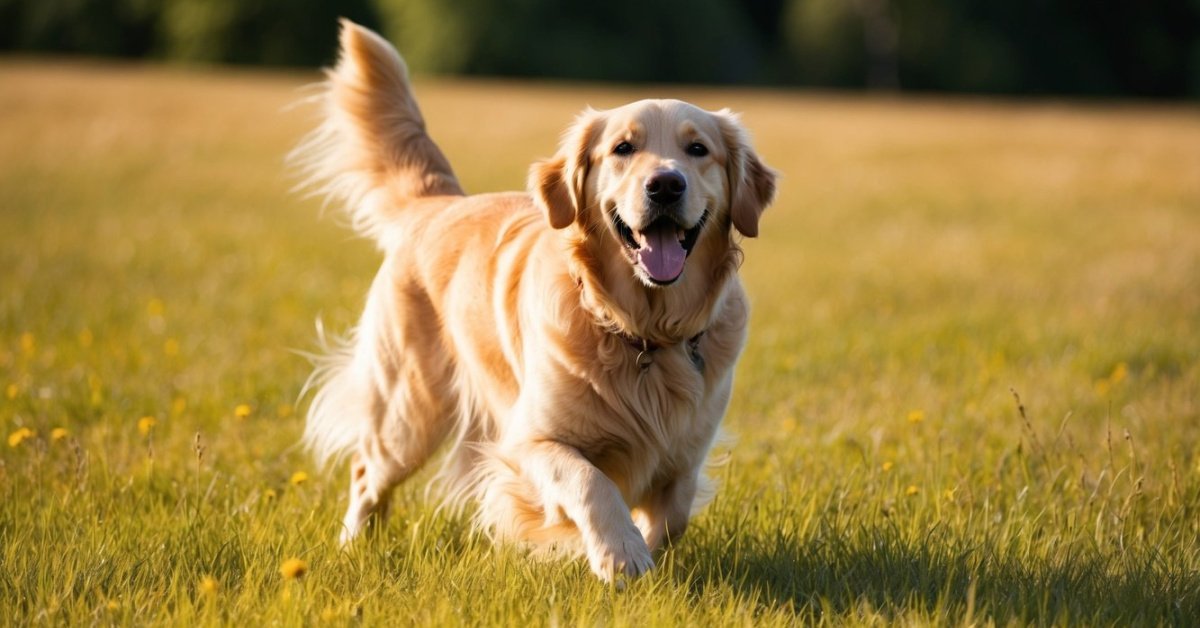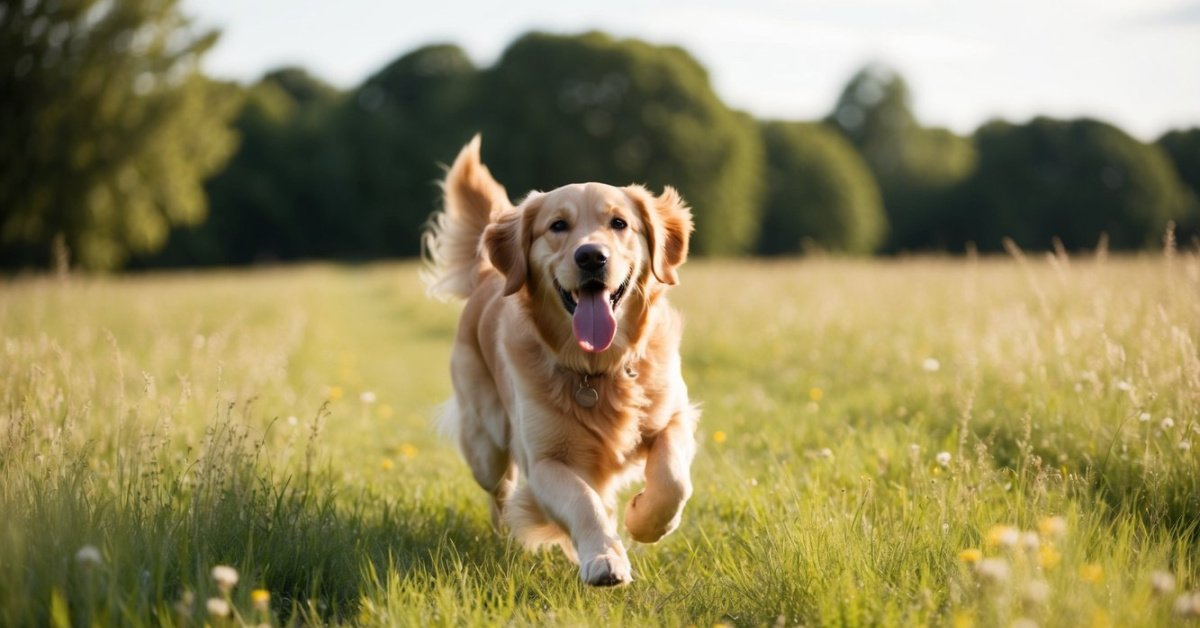Are you curious about how much a Golden Retriever weighs? Well, you’ve come to the right place! In this article, we’ll explore everything you need to know about the weight of these lovable and popular dogs. Whether you’re a current Golden Retriever owner or thinking about getting one, understanding their weight range is essential for their overall health and well-being. So, let’s dive in and discover how much these furry friends typically weigh!
Have you ever wondered about the average weight of a Golden Retriever? Look no further! In this article, we’ll delve into the topic of Golden Retriever weights, providing you with all the essential information you need. Whether you’re a proud Golden Retriever owner or simply interested in learning more about these friendly canines, understanding their weight range is crucial. So, let’s get started and find out just how much these adorable dogs typically weigh!
Understanding the Golden Retriever Breed
As a dog lover who owns a golden retriever and a Goldendoodle, you probably already know that each breed has its own unique characteristics. However, it’s essential to have a good understanding of the Golden Retriever breed to ensure the health and happiness of your furry friend.
1. History and Origin
Golden Retrievers were originally bred in Scotland in the mid-19th century. Their primary purpose was to retrieve waterfowl during hunting expeditions. The breed was developed by crossing water spaniels, retrievers, and other hunting breeds. Their intelligence, agility, and gentle nature made them excellent companions for hunters. Over time, Golden Retrievers gained popularity as family pets due to their friendly and trustworthy disposition.
2. Physical Attributes
Golden Retrievers are known for their beautiful golden coat, which is dense and water-repellent. They have a sturdy build with a muscular body and a broad head. These dogs have a friendly expression, thanks to their dark, kind eyes and a broad nose. As medium to large-sized dogs, Golden Retrievers typically weigh between 55 and 75 pounds, with males being slightly larger than females. Their average height ranges from 21.5 to 24 inches at the shoulder.
3. Temperament and Personality
Golden Retrievers are widely loved for their friendly and affectionate nature. They are known for their patience, intelligence, and desire to please their owners. These dogs are excellent with children and get along well with other pets. Their sociable and outgoing personalities make them great companions for both individuals and families alike.
4. Exercise and Training
Golden Retrievers are active dogs that require regular exercise to keep them happy and healthy. Daily walks, interactive play sessions, and mentally stimulating activities are essential to keep them physically and mentally stimulated. As a highly trainable breed, Golden Retrievers excel in obedience training and can thrive with positive reinforcement techniques.
5. Health Considerations
While Golden Retrievers are generally healthy dogs, they may be susceptible to certain health conditions. These can include hip dysplasia, elbow dysplasia, heart disease, and certain types of cancers. Regular veterinary check-ups, a balanced diet, and appropriate exercise can help minimize the risk of any potential health issues.
By understanding the Golden Retriever breed, you can better cater to their needs and provide them with a loving and fulfilling life. Whether you already own a Golden Retriever

Factors Influencing the Weight of a Golden Retriever
« Discover the Astonishing Duration of the Golden Retriever Puppy Stage – The Surprising Truth Unveiled
Discover the Shocking Truth: Golden Retrievers and Goldendoodles Suffering from Seizures Revealed »
As a dog lover and owner of both a Golden Retriever and a Goldendoodle, I understand how important it is to know about the factors that can influence the weight of your furry friend. This knowledge can help you ensure that your Golden Retriever or Goldendoodle is at a healthy weight and is living their best life. Here are a few key factors that can influence the weight of a Golden Retriever:
1. Genetics: Just like humans, dogs inherit certain traits from their parents, including their potential size and weight. Golden Retrievers, for instance, are a large breed and tend to weigh between 55 and 75 pounds. However, it’s important to note that individual dogs within the breed can vary in size and weight depending on their genetic makeup.
2. Age: Like humans, dogs go through different stages of growth. During the first year of a Golden Retriever’s life, they experience rapid growth and reach their adult height and weight by around 12 months. It’s crucial to monitor their weight during this stage to ensure they are growing at a healthy pace.
3. Diet and Nutrition: The food you feed your Golden Retriever plays a significant role in their weight. Providing a balanced and nutritious diet is crucial for maintaining a healthy weight. Consult with your veterinarian to determine the appropriate portion sizes and the right type of food for your dog’s specific needs.
4. Exercise: Regular exercise is essential for weight management and overall well-being. Golden Retrievers are an active breed that requires daily exercise to keep them mentally and physically stimulated. Make sure to provide them with opportunities for playtime, walks, and other activities based on their energy level and age.
5. Health Conditions: Certain health conditions, such as hypothyroidism or metabolic disorders, can lead to weight gain in dogs. If you notice significant changes in your Golden Retriever’s weight or if you’re concerned about their weight, it’s important to consult with your veterinarian. They can provide guidance and rule out any underlying health issues.
Understanding the factors that can influence your Golden Retriever’s weight is crucial for their overall health and well-being. By considering genetics, age, diet, exercise, and monitoring their health, you can help ensure that your furry friend maintains a healthy weight throughout their life. With proper care and attention, your Golden Retriever or Goldendoodle can live
Age and Growth Stages of a Golden Retriever
As a dog lover and owner of both a Golden Retriever and a Goldendoodle, I understand the importance of knowing about the different growth stages of these breeds. Whether you’ve recently brought home a new Golden Retriever puppy or have had one for years, it’s crucial to be aware of how their weight can change over time. Let’s explore the age and growth stages of a Golden Retriever to give you a better understanding of what to expect.
Puppy Stage:
During the puppy stage, Golden Retrievers experience rapid growth. From birth to around 6 months, your pup will likely double or even triple in size. At this stage, it’s essential to provide a well-balanced diet that meets their nutritional needs. Consult with your veterinarian to ensure your puppy is receiving the right amount of food for proper growth and development.

Adolescent Stage:
As your Golden Retriever enters the adolescent stage, which typically occurs between 6 to 18 months, their growth rate begins to slow down. However, they will still continue to gain weight and fill out. Monitoring their weight is crucial during this stage, as excessive weight gain can put strain on their joints. Regular exercise and a healthy diet are essential to keeping your Golden Retriever at a healthy weight.
Adult Stage:
Once your Golden Retriever reaches adulthood, which is typically around 2 years old, their growth rate stabilizes, and they reach their full size. Adult male Golden Retrievers usually weigh between 65-75 pounds, while females typically weigh between 55-65 pounds. However, it’s important to remember that these are just average weights, and individual dogs may vary.
Senior Stage:

As your Golden Retriever enters their senior years, which is around 7-8 years old, their metabolism may slow down, and they may become less active. It’s crucial to monitor their weight during this stage and adjust their diet and exercise accordingly to prevent obesity and maintain their overall health.
By understanding the different age and growth stages of a Golden Retriever, you can better cater to their needs at each phase of their life. Remember to consult with your veterinarian for personalized advice specific to your dog’s health and well-being. With proper care, your Golden Retriever will continue to thrive throughout their life.
Nutritional Requirements for a Healthy Weight
As a responsible Golden Retriever or Goldendoodle owner, it’s crucial to understand the nutritional requirements for maintaining a healthy weight in your furry friend. By providing the right diet and portion control, you can help your dog avoid common weight-related issues and ensure they lead a happy, active life.
1. Choose a High-Quality Dog Food
Selecting a high-quality, well-balanced dog food is essential for maintaining a healthy weight. Look for a formula that is specifically tailored to meet the nutritional needs of large breed dogs. Such formulas usually contain the ideal balance of proteins, fats, and carbohydrates to support their overall health and weight management.

2. Portion Control Is Key
Just like humans, dogs can easily pack on the pounds if they consume too many calories. It’s important to feed your Golden Retriever or Goldendoodle the appropriate portion size for their size, age, and activity level. Consult with your veterinarian to determine the right amount of food your dog should be consuming each day.
3. Monitor Treat Intake
Treats are a wonderful way to reward your furry friend, but they can also contribute to weight gain if not given in moderation. Be mindful of the number of treats you offer and choose healthy, low-calorie options. You can also break larger treats into smaller pieces to make them last longer.
4. Regular Exercise

In addition to diet, regular exercise plays a crucial role in maintaining a healthy weight for your Golden Retriever or Goldendoodle. Aim for at least 30 minutes of exercise per day, which can include walks, runs, fetch, or even swimming. Regular physical activity not only helps burn calories but also keeps your dog mentally stimulated and happy.
5. Regular Weigh-Ins
To keep track of your dog’s weight, it’s important to regularly weigh them. By monitoring their weight, you can make adjustments to their diet and exercise routine as needed. This will help prevent any drastic weight changes and keep your dog in the best shape.
Remember, every dog is unique, and their nutritional needs may vary. If you have any concerns about your Golden Retriever or Goldendoodle’s weight or overall health, don’t hesitate to consult with your veterinarian. Together, you can ensure that your furry friend maintains a healthy weight and enjoys a long, active life.
Exercise and Activity Levels
One of the key factors that can influence how much your Golden Retriever weighs is their exercise and activity levels. As a responsible dog owner, it’s essential to ensure that your furry friend gets enough physical activity to maintain a healthy weight.

Exercise Needs
Golden Retrievers are known for their energetic and active nature. They require regular exercise to keep them physically and mentally stimulated. Aim for at least 30-60 minutes of exercise every day to keep your furry companion happy and healthy. This could include activities such as:
- Brisk walks: Enjoy a leisurely stroll in the neighborhood or explore nearby parks.
- Playtime: Engage in interactive games like fetch or hide-and-seek to keep them entertained.
- Swimming: Take advantage of their love for water and go for a swim or find a dog-friendly pool or beach.
Tailored Activities for Your Golden Retriever
Every Golden Retriever has their own unique personality and energy levels. It’s important to understand their individual needs and preferences when it comes to exercise. Some may enjoy long hikes or agility training, while others may prefer shorter but more frequent play sessions.
Keep them Engaged

Engaging your Golden Retriever in both physical and mental activities is vital. Mental stimulation exercises, like puzzle toys or obedience training, can help tire them out and prevent boredom. This is especially important if you live in an apartment or have limited outdoor space.
Exercise and Weight Management
Regular exercise not only helps your Golden Retriever maintain a healthy weight, but it also contributes to their overall well-being. Physical activity can strengthen muscles, improve cardiovascular health, and prevent obesity-related health issues. Be mindful of their joints, especially as they age, and opt for low-impact exercises like swimming.
Remember to consult with your veterinarian about the appropriate exercise routine for your Golden Retriever or Goldendoodle. They can provide personalized advice based on your dog’s age, health, and overall well-being.
Conclusion
Now that you have learned about the average weight of Golden Retrievers and the factors that can influence their weight, you are equipped with the knowledge to ensure the overall health and well-being of your furry friend. Remember to monitor your Golden Retriever’s weight at each stage of their life, from puppyhood to their senior years, and make adjustments to their diet and exercise routine as needed. By choosing a high-quality dog food, practicing portion control, monitoring treat intake, and providing regular exercise, you can help your Golden Retriever maintain a healthy weight.

It is important to consult with a veterinarian for personalized advice tailored to your Golden Retriever’s specific needs. They can provide guidance on the ideal weight range for your dog and offer recommendations for exercise routines that will keep them active and engaged. Regular exercise not only helps your Golden Retriever maintain a healthy weight, but it also promotes muscle strength, cardiovascular health, and joint health.
By prioritizing your Golden Retriever’s weight and exercise needs, you are ensuring that they live a happy and healthy life. So, get out there and enjoy some quality time with your furry companion!







![PetDroid Interactive Dog Toys Dog Ball, [Newly Upgraded] Durable Motion](https://m.media-amazon.com/images/I/41P-nlk1L0L._SL500_.jpg)



